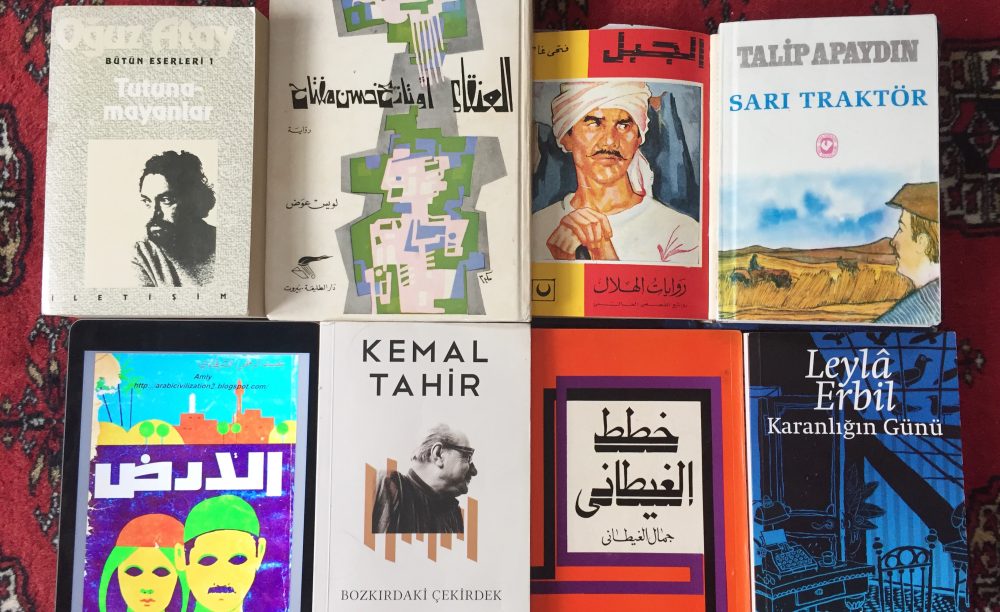Relevance:
good conversation on the political relevance of the narrative choices of al-Ghitani, specifically in Zayni Barakat, but not a deeper explanation of the social world.
Notes:
- Gamal al-Ghitani was born in 1945 in Suhag, in Upper Egypt. The family then moved to Gammaliyah, in Old Cairo, where al-Ghitani remained until he married.
- Two of the major events in al-Ghitani’s life have been the June 1967 Arab-Israeli war, and Sadat’s visit to Jerusalem in 1977, which culminated in peace with Israel. He describes these periods as being some of the blackest in his life. For him these two historical moments represented the erosion of principles and the destruction of an ideology that he had grown up with.
- Al-Ghitani, who was one of the young writers imprisoned in 1966 because of “political activism,” spent six months in a detention camp. Thereafter he refrained from direct political involvement. The choice to remain silent on the open political front has been paralleled by a very strong political and ideolog- ical message delivered through his fiction.
the revolution). He probably started school advent of the 1952 revolution in Egypt. One of t Officers’ regime was to breed a new generation f rhetoric and a new self-image. Through a process and rewriting history in a manner that would do ary period, the new “democratic” regime succe that strongly believed in this newly forged im “strongest nation” of the “Arab world.”9 On regime fully realized the politically significant r pre-revolutionary period. Consequently, one of t revolution was cen
In other words, the war led to a reexamination of the ideology and the very language that expressed that ideology.
ng to destroy t hostile propaganda,” and “acting against the n writers had to face many challenges, among Arabic language) that had been robbed of its rich that medium, and the need to refashion “conven longer represented
- pastiche and hypertextuality


